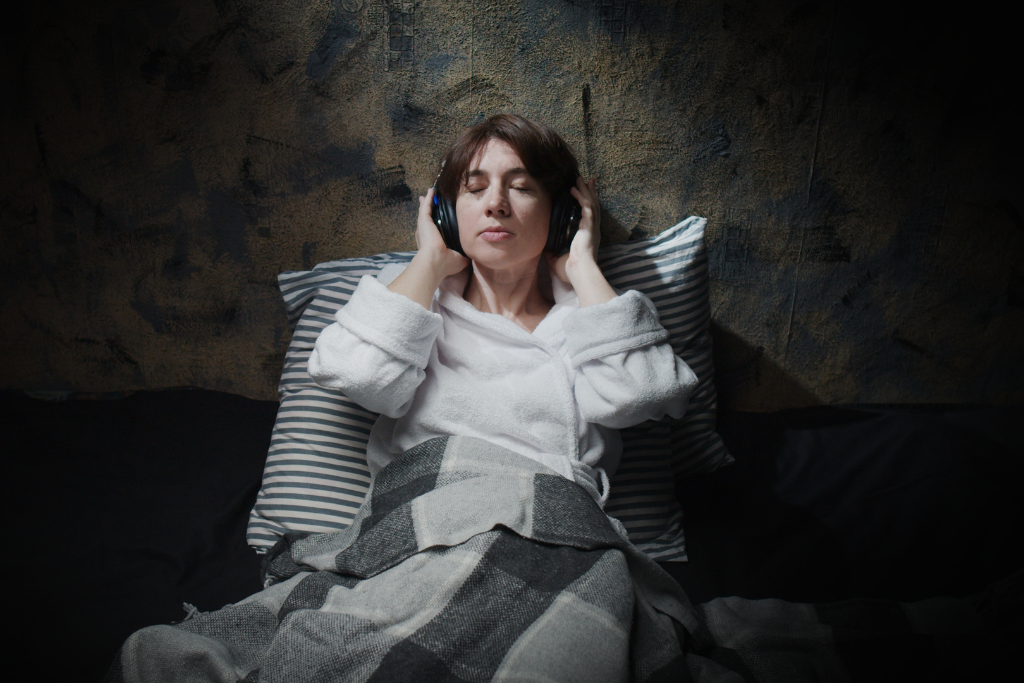Getting a good night’s sleep is essential for our overall well-being, but with the stresses of everyday life, achieving that can be challenging. Fortunately, there are some natural remedies to help us drift off into dreamland effortlessly. If you’re struggling to get enough restful sleep at night and tired of counting sheep or tossing and turning in your bed, then it’s time to try something new. In this blog post, we’ll explore how rain and piano sounds can enhance your sleep quality and provide you with some tips on how to create the perfect environment for better slumber. So sit back, relax, and let’s discover the science behind why these soothing sounds work wonders for our minds and bodies!
Relaxes your body
Residual stress and worry from the day can be a big hindrance to sleep. Learning techniques to relax can help. Deep breathing and body scan exercises can reduce tension and calm the mind. Other techniques include visualization, meditation, and autogenic training (repeating soothing phrases). Try these relaxation exercises to see what works best for you.

For the body scan exercise, start with your face and consciously relax the muscles. Move down to the neck and shoulders and release any tension, then the arms, hands, and fingers, all the way down to your fingertips. Then, move to the chest and abdomen and relax the muscles. Continue to the legs, tensing and relaxing each one. Finally, move down to the thigh and calf muscle groups. Relax them, and then work down to your feet and toes.
There are a variety of ways to relax before sleep, including listening to music, taking a hot bath, and practicing meditation or deep breathing. Developing a bedtime ritual and avoiding mentally stimulating activities can be helpful. It is also important to have a comfortable bedroom and to avoid eating large meals close to bedtime, as these can interfere with sleep. If you are having trouble sleeping, it is recommended to visit a specialist for more advice or professional help. Talk to your primary care provider about a referral.
Helps reduce stress
Many people report that stress keeps them up at night, with anxious thoughts gnawing at their brains and making it difficult to fall asleep. Even one sleepless night can trigger an increase in anxiety levels, so getting a good night’s rest is essential to keeping stress levels low.
If you are feeling stressed or anxious before bed, try to find ways to de-stress before sleeping. Practicing relaxation techniques such as deep breathing, meditation and guided imagery, and progressive muscle relaxation is known to reduce feelings of stress and tension. Limiting your news feed and staying away from electronic devices before bed can also help to keep your mind and body calm.

In addition, a few studies have shown that listening to rain sounds or classical music improves mental performance on stressful tasks. Researchers have speculated that this may be because rain and music sound similar to white noise, which can calm the mind.
In addition to these de-stressing activities, a good sleep environment and proper nutrition can also help to improve your stress levels and enhance your sleep quality. You should avoid caffeine and alcohol before bed, as they can interfere with your sleep, and try to eat a well-balanced diet that includes lots of fruits and vegetables. Additionally, a relaxing bath or shower before bed can relax your muscles and prepare you for a restful night’s sleep.
Helps you fall asleep
The soothing sound of rain can be hypnotic, and its constant rhythm can lull you into sleep. It can also help mask other sounds that might keep you awake. There are many ways to listen to rain sounds, including free online videos on YouTube or through websites like Calmsound and a range of apps that can play white noise or pink noise (like Rain Rain Sleep Sounds and Pink Noise HQ). Some sleep aids include built-in tracks, too, such as the Google Nest Hub and Bose Sleep Buds. Listening to music can help you calm down and drift off to sleep, and it may even be better than using medication. A 2017 study found that people who listened to natural soundtracks had increased parasympathetic nervous system activity, which helps them feel calm.

Instrumental music is often best for helping you relax because it doesn’t have lyrics and can be calming without being distracting. In addition, slow-paced instrumental songs can slow your heart rate, lower blood pressure, and reduce levels of the stress hormone cortisol. Try this one hour of relaxing music mixed with serene rain and a piano sound that will help you sleep, meditate, focus, or just withdraw from the world for a moment and re-find your inner peace. You can download it for free on Spotify or iTunes.
Rain and piano sound sleep quality tips
When it comes to enhancing your sleep quality with the help of rain and piano sounds, there are a few tips that can make all the difference. First and foremost, it’s important to create a peaceful environment that is conducive to sleep. This means minimizing distractions such as bright lights or loud noises. To maximize the effectiveness of rain and piano sounds, consider investing in high-quality speakers or headphones. This will ensure that you can fully immerse yourself in the soothing melodies without any interruptions.

Another tip for using rain and piano sounds for better sleep is timing. It’s best to start listening at least 30 minutes before bed so that your mind has time to relax and unwind. Additionally, setting a consistent bedtime routine can also help train your brain to associate these calming sounds with falling asleep. Don’t be afraid to experiment with different types of rain and piano tracks until you find what works best for you personally. Some people prefer soft classical music while others may enjoy more ambient nature sounds like thunderstorms or gentle rainfall. By following these simple tips, you’ll be well on your way toward achieving deeper, more restful sleep with the help of soothing rain and piano sounds.

